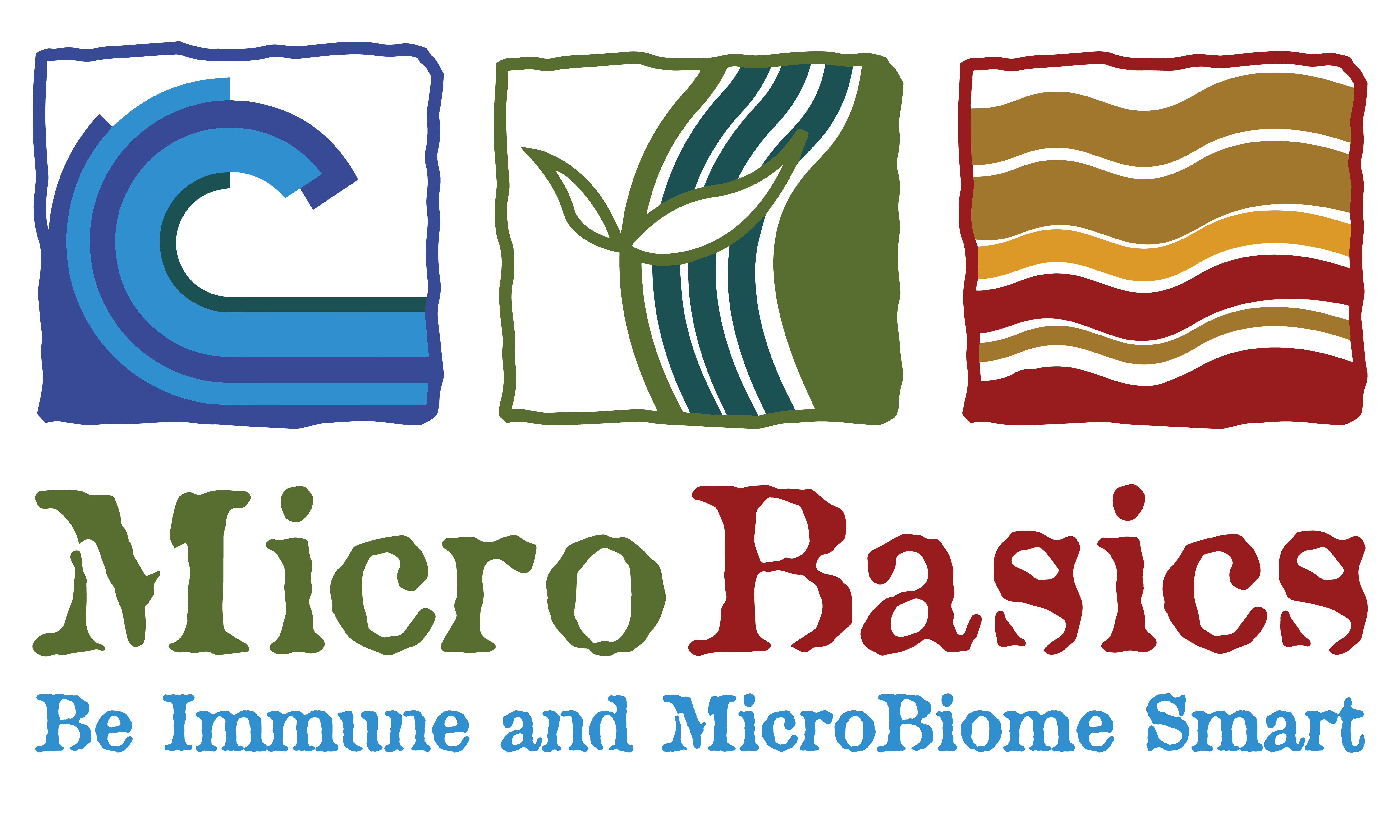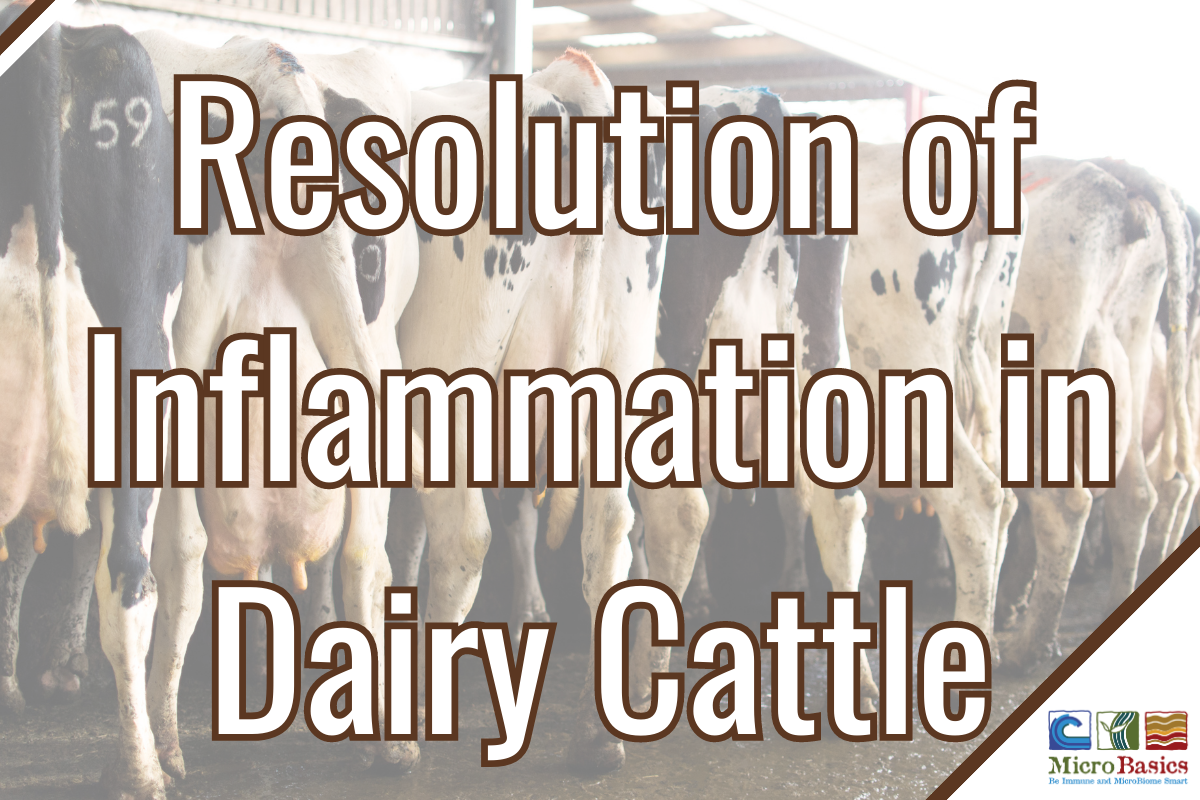High producing dairy cattle are more vulnerable to disease leading to a shorter life expectancy and reduced thriftiness. Improved understanding of immune function is needed in discovering the best tools to combat existing disease and any future pathogens that may compromise animal health.
Gut Microbiome
The establishment and development of the gut microbiome is a dynamic process that is influenced by several factors.
- Host related factors influencing the microbiome included functional maturity of the gut and the immune system.
- External factors including everything in the animal’s environment, nutritional status, antibiotic use, etc.
There is growing evidence associating the microbiome with alterations in immune function systemically and within the gut.
Nutrition and Immunity
Dietary influenced inflammation is a major contributor to several metabolic diseases common in dairy cattle including mastitis, retained placenta, metritis, displaced abomasum, hoof disorders, respiratory challenges, diarrhea, and ketosis. Most of these health problems in mature dairy cattle occur around calving due to hormonal shifts and the increased nutrient demands for lactation.
Maintaining a properly balanced ration, avoiding environmental toxins, managing to drive dry matter intake, and feeding to modulate immunity can help to alleviate some of the effects caused by disease during this time. The following chart shows various nutrients and their role in the immune response.
| Nutrient | Role in Immunity |
| Fat/Energy | Regulated cell mediated immunity and antibody response. |
| Protein | Proliferation and maturity of immune cells. |
| Glucose | Up-regulation of cell proliferation, cell differentiation, chemotaxis, phagocytosis. |
| Glutamine | Up-regulation of cytokine and reactive oxygen metabolite production, cell division, phagocytosis, CD4 T cell proliferation. |
| Tryptophan | Activation and maintenance of the immune response. |
| Fatty Acids | Down regulation of IgM secretion, cytokine production, cell viability, phagocytosis, antigen presentation. Up-regulation of oxidative burst, necrosis, phagocytosis, cytokine and ROM production, TLR signaling. |
| Selenium | Maintenance of the antioxidant system, enhancement of neutrophil function. Migration of neutrophils and macrophages. |
| Zinc | Overall immune function, antioxidant activity, epithelial barrier integrity, nucleic acid and protein synthesis, cell division. |
| Copper | Overall immune function, antioxidant activity, enhancement of interferon production. |
| Iron | Antioxidant defense, energy, and protein metabolism. |
| Manganese | Overall immune function, antioxidant protection, carbohydrate, and lipid metabolism. |
| Chromium | Regulation of cell-mediated and humoral immune responses, upregulation of blastogenic response, enhancement of cytokine production, antibody production. |
| Vitamin A | Overall immune function, upregulation of lymphocyte proliferation. |
| Vitamin B | Antioxidant defense, upregulation of lymphocyte proliferation. |
| Vitamin D | Antioxidant defense, down-regulation of inflammation |
| Vitamin C | Antioxidant defense, down regulation of inflammation |
| Vitamin E | Antioxidant, enhancement of neutrophil function, increase production of IL 1 and major histocompatibility class II antigen expression. |
Resolution of Inflammation
Inflammation is a normal immune response to a pathogen challenge or damaged tissue. Signs may include redness, swelling, and pain. The body increases blood flow to transport immune components to the infected area. Proper completion of the cycle results in timely removal of the pathogen, damaged tissue and cells, and restoration of tissue homeostasis.
The process of inflammation is glucose dependent, and may increase the maintenance requirement up to 40%, resulting in milk yield losses. Length of recovery time is critical to the chance of the animal recovering completely and for minimizing the amount of lost milk production. Providing the needed nutrients for immune function can help to shorten recovery time and prevent production losses.
We still have a lot to learn about the bovine immune function and the best strategies to resolve inflammation and maintain optimal cattle health. But one thing is for sure, we are developing our toolboxes. Probiotics, prebiotics, IgY, minimizing the use of antimicrobials, and other management factors influencing epithelial integrity are all tools expected to have a positive impact on combating infectious disease and inflammatory disorders in high producing dairy cattle.
Written by: Mariah Gull, M.S.
Sources:
Vlasova, AN and Saif LJ (2021) Bovine Immunology: Implications for Dairy Cattle. Front. Immunol. 12:64 in Immunology3206.

